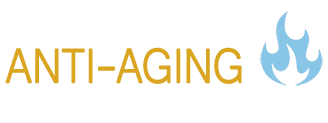- Home
- What Hormones Influence Your Muscle Buildup and What to Do With Them?
What Hormones Influence Your Muscle Buildup and What to Do With Them?

All who practice sports know the relevance of physical activity for hormone balance. Concentrations of individual hormones differ considerably, depending on the type of the activity. What do you need to know to effectively build up your muscles and body mass and not spoil the effect? We are going to focus on the most important hormones: testosterone, cortisol, and insulin.
What is testosterone?
Testosterone is a hormone secreted by the hypothalamus and the frontal lobe of the pituitary gland. The hormone is responsible for:
Androgenic features:
- development of secondary male characteristics (development of sex organs, libido, male voice, body hair);
- increase in the size and mass of muscles;
- key role in the protein economy
Anabolic features:
- related to an increase in body mass.
A male body produces daily c.a. 7 mg of testosterone, with the peak concentration between 6 and 9 in the morning. As much as 98% of testosterone binds with proteins, 55% with globulin (which is responsible for sex hormone-binding) and 2% of the hormone determines biological activity.
Functions of testosterone:
Testosterone is anabolic, meaning that it binds proteins, thus leading to muscle development. It causes insignificant retention of sodium, potassium, calcium, sulphates, phosphates, and water. Plus, it has an effect on a number of the body’s most vital organs: kidneys, liver, heart, skeletal muscles, bulbospongiosus muscle, bones, marrow, salivary glands, urinary bladder, skin, sebaceous glands, and hair, by supporting their functions, thymus, spleen and lymphatic tissue (may compromise immunity).
Among the main functions of testosterone are:
- muscle (body mass) building – accelerates protein binding and inhibits protein degradation
- energy supply for muscles – accelerates glycogen replenishment after exercises
- enhancement of erythrocyte (red blood cell) multiplication.
 What is the effect of physical activity on testosterone?
What is the effect of physical activity on testosterone?
It all depends on what activity we are talking about:
- short, intense activity increases blood testosterone;
- long-lasting effort leads to testosterone drop for as many as several days;
- maximum effort causes a short-term increase in testosterone concentration immediately after a workout.
Strength training usually increases blood testosterone levels. The growth of blood testosterone concentration depends on the intensity of the workout, weight, and muscle mass. The results are similar for both men and women, although in women they are less prominent. Other indicators suggest that working out reduces resting blood testosterone (from 25 to even 75%).
What is cortisol?
Cortisol is a catabolic hormone, which causes the degradation of contractile proteins in skeletal muscles. The highest concentration of cortisol is observed between 8 and 9 in the morning and between 2 and 4 at night. The hormone has a considerable impact on carbohydrate, protein, and fat metabolism and on the metabolism of virtually all nucleated cells.
What is more, together with insulin, glucagon, adrenaline, and the growth hormone, cortisol is responsible for proper blood glucose through gluconeogenesis, participates in glycogen synthesis, and influences protein metabolism.
Functions of cortisol
Since the growth of cortisol leads to negative protein balance, it seems natural that the hormone inhibits muscle proliferation. Catabolic processes provide the body with numerous nutrients making it capable of performing a hard workout.
If you want to build up muscles, what you should pay attention to is the duration of the training and the time of the day when the cortisol level is elevated.
The best effects are obtained with high doses of cortisol during intense effort and subsequent lowering of the dose right after the training.
Providing the body with cortisol over an extended time will have a negative effect on health and body composition, as muscles will degrade and insulin resistance will develop. You may start gaining weight and your sensitivity to cortisol may deteriorate. Additionally, too high blood cortisol leads to immunity issues.
Changes in blood cortisol levels depend on the number and quality of training. Those who do strength and endurance training tend to have low cortisol, which may indicate overtraining. Post-workout cortisol concentration also depends on your fitness, adaptation to the effort, and the total work is done.
As a standard, after a resting phase (24h), cortisol level drops to the value from before the training. Insignificant strain (including short training and moderate-intensity training) after the workout has no effect on cortisol secretion. In conclusion: the bigger the effort, the higher the blood cortisol level (higher values are reported in less trained people).
What is insulin?
Insulin is an anabolic hormone, with even higher anabolic properties than the growth hormone. These properties do not translate so much into muscle development or fat loss as into inhibition of carbohydrate, fat, and protein decomposition.
Insulin secretion is strictly connected with blood glucose. The primary function of insulin is to maintain proper blood sugar, i.e. at the level between 80 and 100 mg/dL. As the threshold of 100 g/dL is exceeded, insulin leaves the pancreas to collect excess glucose and store it safely.
Excess glucose is stored in:
- muscle glycogen;
- liver;
- adipose tissue (gaining weight).
What is the effect of physical activity on insulin?
Physical effort, other than short and low-intensity training, decreases blood insulin levels. When does insulin level drop?
- during moderate effort;
- sub-maximum effort;
- maximum training;
- strength training;
- gradually growing effort.
Insulin synthesis drops as a result of training. If you want to reduce the basal blood insulin concentration and insulin secretion, you should consider an endurance workout.
What is the effect of insulin on protein synthesis?
Insulin stimulates protein synthesis through ribosomal activity (ribosomes produce increasing amounts of protein). Insulin “orders” the ribosomes to work. Without the order, they remain inactive. This means that insulin is indispensable for muscle mass building.
 The anabolic activity of insulin is equally important as its anti-catabolic activity. How does it work?
The anabolic activity of insulin is equally important as its anti-catabolic activity. How does it work?
The body synthesizes and decomposes proteins every day. If you want to build up your muscles, you need a positive protein balance, i.e. the amounts of synthesized protein should exceed the amounts of decomposed proteins.
Additionally, insulin delivers amino-acids to muscles and directly to muscle cells, making you only one step away from beautiful muscles.
How does insulin stimulate muscle mass building?
Insulin promotes the development of muscle mass by increasing glycogen synthesis, i.e. by making the muscles more effectively. Insulin delivers glucose to muscle cells, thus enhancing their performance and recovery.
If you want to build up your muscles, you need to remember to keep high insulin levels all day long. The crucial moment, however, is right after training, when your body is sensitive to insulin and glucose will not immediately transform into fat, but into glycogen instead. Then, you can safely eat a large portion of carbohydrates.
Insulin is a signal for the body of whether you want to build up muscles or burn fat. What does it mean?
If your blood sugar is high, insulin is secreted and glucose gets to the liver in the form of muscle glycogen. If your blood sugar is low, the insulin level is low, too, and the body uses fat as fuel.
If you want to both build up your muscles and burn fat, you can choose certain times of the day when you will decide about your blood sugar levels, knowing what you will achieve. In order to accelerate muscle proliferation, increased insulin secretion is necessary. It is good, however, to prepare such portions twice a day at most (post-workout and in the morning) and eat lighter meals during the day. Then, the body will switch to burning fat.
Book Free Consultation!
To learn more about how hormones influence your muscles, contact our experts.


 What is the effect of physical activity on testosterone?
What is the effect of physical activity on testosterone?